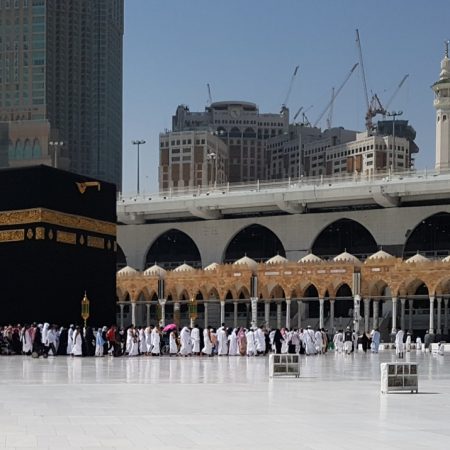Pakistan, the U.S.A. & The War on Terror
By Geoffrey Cook, Muslim Media News Service (MMNS)
The end of last week the President of the Islamic Republic, Musharraf, fired the Chief Justice of the nation as black-suited lawyers hit the streets in protests. Although the general (the same President Pervez M.) promised to set up a blue ribbon commission to investigate charges of corruption against the Judge. The country is furious!
Pakistan and the United States have been uneasy allies since Al-Qaeda’s September 11th, 2001 attack on New York City and Washington, D.C.
The quotes in this story are by the editor of Frontline and a Pakistani professor at the University of Texas (U.T.) who declared, “Pakistan is the most ungovernable nation in the world!†Along the Durand Line (the border between Pakistan and Afghanistan), autonomy from Islamabad traditionally existed, and recently through a treaty with several traditional leaders in the mountainous Pushtoon provinces, it was established into formal law to the consternation of the leaders of the United States and Kabul.
Washington has been inconsistent with Islamabad. We have too often chosen to support expedient military regimes, causing ill-will amongst the majority of the people. Too often, though, these alliances were “shotgun†marriages forced upon Pakistan by the US, and that after 9/11 was the last such incident.
In the 1980s, both the US and Pakistan were anti-Soviet partners (which goes back to the “Great Game†of the British Indian Empire and the Russian Empire in the Nineteenth Century over what has now become Afghanistan).
After the Soviet forces withdrew from Afghanistan at the end of the 1980s, America withdrew their aid to Afghanistan and Pakistan, leaving them floundering.
Afghanistan fell into a five-way civil war, and military and civil help to Karachi, ended. We betrayed our loyal allies!
Now, after their utter defeat in the 2001 War, the Taliban has re-organized mainly in Pakistan itself.
One of the reasons for this is because the US has failed structurally to rebuild the Afghanistan that we have destroyed so thoroughly, again.
Further, the U.S. continues to put pressure on Islamabad and Pakistan through its weakness feels itself too dependent upon America to say no.
Pakistani politics are complex. The role of the army has increased tremendously. The armed forces make almost all major decisions. Pak society is completely militarized. The generals interpret the law fully supported by the US.
The Defense Forces have expanded their role into the corporate sector. (In fact, I was at a conference as a chair. One of the presenters from the Peshawar [main city in the Northwest Provinces] told me that the Army even produces the breakfast cereal available in the civilian stores!)
It is true that women still suffer in Afghanistan and Pakistan, but there have been some (little) improvements (this is more of a social than a religious dilemma). The main problems on both sides of the Durand Line (border) revolve around ethnicity. We must look at the violence against the governments of Afghanistan in the tribal areas as nationalist insurrections.
For counter-insurgency, Pakistan must have free and fair elections for stability. The uprising in Afghanistan has emboldened Pakistan’s enemies. The Taliban has retaken large chunks of the Hindu Kush, and Pakistan and Afghanistan have become Great Power pawns pulling Rawalpini into the international fray.
The social structure is complex in the Islamic Republic. There is prosperity amongst the upper classes, but among the lower classes misery. Succinctly, “It is a very dangerous time.â€
The West targets “the land of the pure†(i.e. the great poet Iqbal’s name for the Republic). “Without a proper democracy we cannot win this War on Terror.†Yes, an extension of Al Qaeda has come down from Islamabad’s mountains.
The upcoming three to four months are crucial for Pakistan’s long-term future. “A change in governmental form is necessary!†Democratic elections are needed, but that properly will not happen.
9-12












2007
781 views
views
0
comments